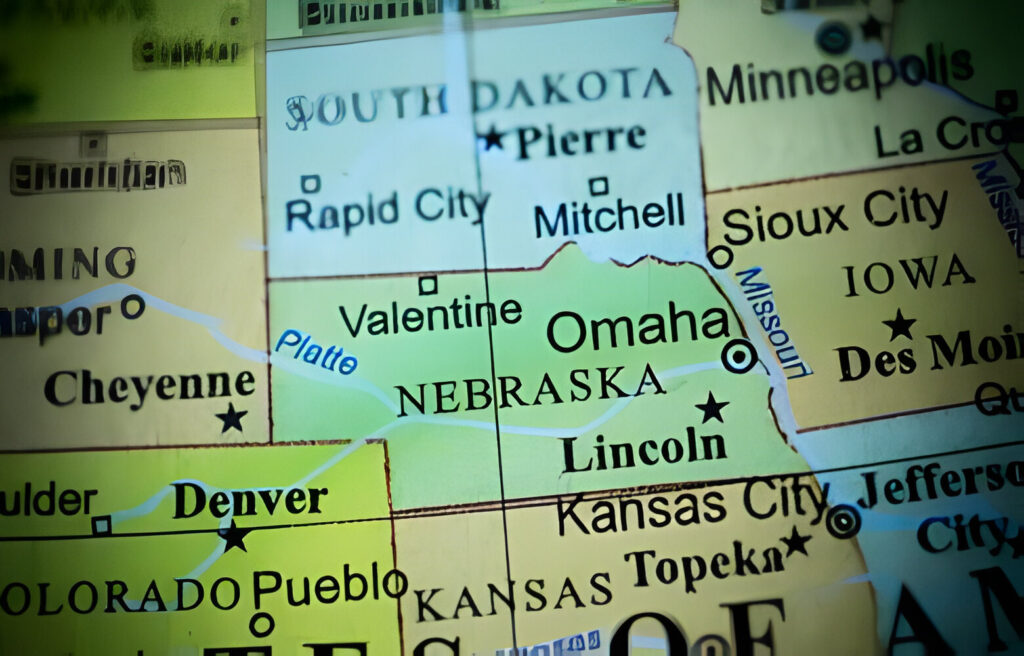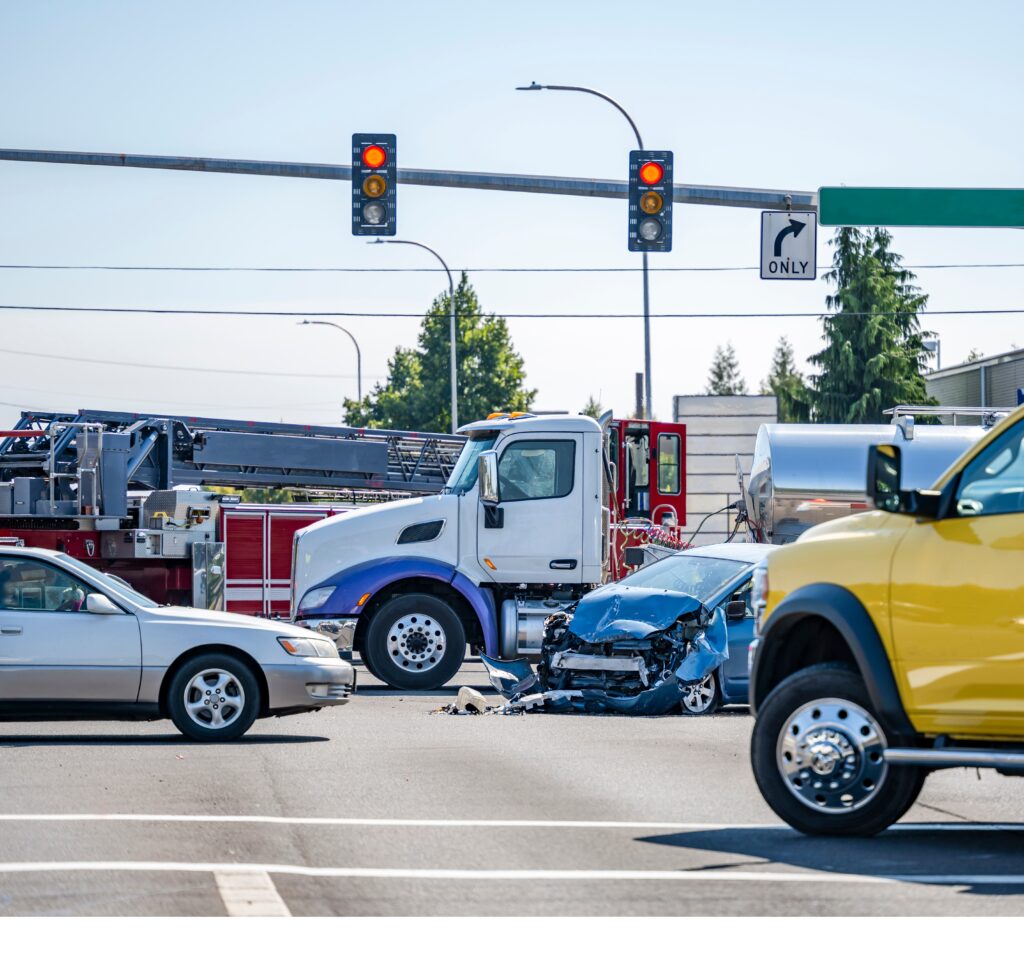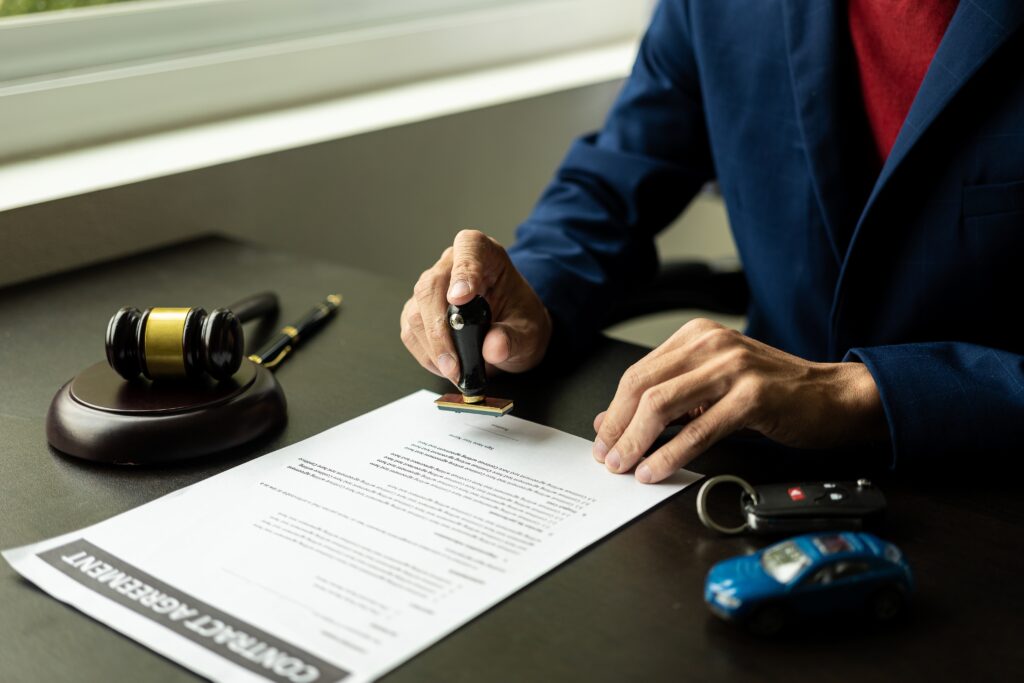In the heartland of the Plains lies Lincoln, Nebraska—a city where history and modernity converge to create a unique tapestry of culture. But amidst the charm of its streets and neighborhoods, you’ll hear scary stories about certain roads.
Whether you’re a daily commuter navigating the urban maze, a weekend explorer venturing into uncharted territories, or simply planning your next Lincoln adventure, you need to know which roads demand your undivided attention.
So, gear up and prepare to journey with Lincoln's personal injury attorney through Lincoln’s thoroughfares. We’re here to uncover the hidden nuances of the city’s roads—the twists, turns, and surprises that await around every corner.
Because in Lincoln, safety isn’t just a preference; it’s a priority. Let’s hit the road and unravel the secrets of Lincoln’s streets, where every mile holds a story waiting for you to discover it.
Risky Roads in Lincoln

Identifying Lincoln’s most dangerous roads can present challenges as accident rates and safety concerns vary.
Based on historical data and local insights, several roads in Lincoln are associated with higher rates of accidents or safety concerns:
- O Street (Highway 34): O Street is a major east-west thoroughfare in Lincoln with heavy traffic flow, particularly during peak hours. Its high volume of vehicles and numerous intersections can increase the risk of accidents.
- 27th Street: 27th Street is another busy north-south corridor in Lincoln that traverses residential, commercial, and industrial areas. Its intersections and diverse traffic patterns can contribute to accidents.
- 70th Street: 70th Street is a major roadway connecting various Lincoln neighborhoods and commercial districts. Its multiple lanes, intersections, and high speeds can pose driver safety challenges.
- 48th Street: 48th Street is a significant north-south arterial road in Lincoln, known for its heavy traffic and frequent congestion. Its intersections and proximity to residential areas may increase the likelihood of accidents.
- Cornhusker Highway (Highway 6): Cornhusker Highway, which runs east-west through Lincoln, experiences significant traffic volume and congestion, particularly near intersections and commercial areas.
Several intersections are known trouble spots, including:
- Street and 27th Street: This major intersection sees heavy traffic flow from multiple directions, with various turning movements and pedestrian activity, increasing the potential for accidents.
- Street and 70th Street: Another significant intersection in Lincoln, where the convergence of two major arterial roads can lead to congestion and increased accident risk, particularly during peak travel times.
- 27th Street and Superior Street: Located in a busy commercial area, this intersection experiences high traffic volume and a mix of turning movements, contributing to accident potential.
- 84th Street and Holdrege Street: This intersection is a gateway to residential neighborhoods and commercial areas, experiencing significant traffic flow and potential congestion.
- 56th Street and O Street: With multiple lanes and complex turning movements, this intersection can be challenging to navigate, particularly during rush hours and periods of heavy traffic.
While these roads have seen higher accident rates, ongoing traffic engineering, education, and enforcement efforts address safety concerns and reduce accidents in Lincoln and other roads.
For the most up-to-date information on road safety in Lincoln, consulting local authorities, transportation agencies, or legal professionals may provide further insights.
What Are the Most Common Causes of Lincoln Car Accidents?

Car accidents stem from all sorts of outside factors, each contributing to the unpredictability of the road. From momentary lapses in attention to environmental conditions, several culprits can set off a collision.
The most common include:
- Driver Distraction: The siren call of smartphones, conversational passengers, or even a quick bite can divert attention from the road, leading to critical errors in judgment.
- Speeding and Reckless Driving: Excessive speeds coupled with reckless maneuvers such as tailgating or lane weaving amplify the risk of losing control and instigating collisions.
- Intoxicated Driving: The impairment caused by alcohol or drugs hampers coordination, cognition, and reaction time, setting the stage for catastrophic accidents.
- Adverse Weather: Rain, snow, ice, or fog pose formidable challenges to even the most seasoned drivers, reducing visibility and traction and increasing the likelihood of accidents.
- Failure to Obey Traffic Laws: Ignoring traffic signals, stop signs, or right-of-way rules disrupts traffic flow, leading to hazardous situations and potential collisions.
- Fatigue and Drowsiness: Prolonged driving without adequate rest can induce drowsiness, impairing alertness and decision-making abilities, akin to driving under the influence.
- Vehicle Failures: Mechanical failures such as brake malfunctions, tire blowouts, or steering issues can swiftly escalate into accidents if not promptly addressed.
Navigating the roadways demands constant vigilance and adherence to safety protocols.
Recognizing these common triggers can foster a proactive approach to accident prevention, safeguarding lives and ensuring safer travel for all.
What Injuries Are Most Common in Lincoln Car Accidents?
In Lincoln, Nebraska, there are a range of injuries most often seen after car accidents, varying from minor to severe, and impacting individuals’ lives in profound ways.
Among the most prevalent injuries are:
- Whiplash: A common soft tissue injury occurring in rear-end collisions, whiplash affects the neck and spine, leading to pain and restricted mobility.
- Cuts and Bruises: Minor cuts, scrapes, and bruises are frequent consequences of accidents resulting from impact with objects within the vehicle or broken glass.
- Fractures and Broken Bones: High-impact collisions can cause fractures or breaks in various body parts, including the arms, legs, ribs, or pelvis, necessitating medical attention and rehabilitation.
- Head Injuries: From concussions to traumatic brain injuries (TBIs), head injuries sustained in car accidents can range from mild to severe, with potential long-term effects on cognitive function and overall well-being.
- Spinal Cord Injuries: Damage to the spinal cord can result in partial or complete paralysis, affecting motor and sensory functions below the injury site and necessitating extensive medical care and rehabilitation.
- Internal Injuries: Often not immediately apparent, internal injuries such as organ damage or internal bleeding can be life-threatening.
- Emotional Trauma: Car accidents can also inflict psychological injuries, including post-traumatic stress disorder (PTSD), anxiety, and depression, impacting individuals’ mental health and overall quality of life.
Navigating the aftermath of a car accident in Lincoln requires thorough medical care, support, and legal guidance to ensure victims receive the necessary treatment and compensation for their injuries and losses.
What Damages Can I Claim After a Lincoln Car Wreck?

People injured in car accidents can pursue compensation for their losses through a legal process known as claiming damages.
Here are the types of damage claims:
Economic Damages: These are tangible monetary losses resulting from the accident, including:
- Medical Expenses: Costs associated with medical treatment, including hospital bills, surgeries, medication, rehabilitation, and future medical care related to the accident.
- Lost Income: Compensation for wages or income lost due to inability to work due to injuries sustained in the accident, including past and future lost earnings.
- Property Damage: Repair or replacement costs for damage to the vehicle or other property due to the accident, including personal belongings inside the vehicle.
- Other Expenses: Additional out-of-pocket expenses incurred directly due to the accident, such as transportation costs for medical appointments or home modifications for disability.
Non-Economic Damages: These intangible losses are more challenging to quantify but are equally important.
They may include:
- Pain and Suffering: Compensation for physical pain, emotional distress, and mental anguish experienced as a result of the accident and resulting injuries.
- Emotional Distress: Psychological harm suffered, such as anxiety, depression, or PTSD, because of the accident.
- Loss of Enjoyment of Life: Compensation for the loss of ability to participate in activities or hobbies enjoyed before the accident due to injuries sustained.
- Loss of Consortium: Compensation for the injuries’ negative impact on the injured person’s relationship with their spouse or family members.
- Punitive Damages: In rare cases involving egregious conduct or recklessness, the court may award punitive damages to punish the at-fault party and deter similar behavior in the future.
Navigating the legal process to claim damages in Lincoln requires the assistance of a qualified personal injury attorney who can advocate for the victim’s rights and ensure fair compensation for their injuries and losses.
How Can a Lincoln Car Accident Lawyer Help

A Lincoln car accident lawyer plays a pivotal role in helping individuals navigate the complexities of the legal system and obtain fair compensation for their injuries and losses.
Here are some ways in which a car accident lawyer can assist:
- Legal Experience: A car accident lawyer brings extensive knowledge of Nebraska’s personal injury laws and legal procedures, ensuring your rights are protected and advocating for your best interests throughout the claims process.
- Case Evaluation: Your lawyer will thoroughly evaluate the circumstances surrounding your accident, including gathering evidence, reviewing police reports, and assessing the extent of your injuries to determine the strength of your case.
- Negotiation with Insurance Companies: Your lawyer will handle all communication and negotiations with insurance companies on your behalf, working to secure a fair settlement that adequately compensates you for your medical expenses, lost wages, and pain and suffering.
- Litigation Representation: If a fair settlement cannot be reached through negotiation, your lawyer will not hesitate to take your case to court and advocate for you during trial proceedings, presenting compelling arguments and evidence to support your claim.
- Investigation and Evidence Gathering: Your lawyer will conduct a thorough investigation into the circumstances of your accident, gathering evidence such as witness statements, accident reconstructions, and medical records to strengthen your case.
- Expert Witness Consultations: Your lawyer may consult with medical experts, accident reconstruction specialists, and other professionals to provide professional testimony and support your claim for damages.
- Guidance and Support: Throughout the legal process, your lawyer will provide you with guidance, support, and regular updates on the progress of your case, ensuring that you are informed and empowered every step of the way.
A Lincoln car accident lawyer can provide invaluable assistance in navigating the complexities of the legal system, advocating for your rights, and helping you obtain the compensation you deserve following a car accident.
How to Find the Right Personal Injury Attorney

With numerous law firms and attorneys offering their services, it can be overwhelming to choose the right one.
Here are some essential steps to help you find the right personal injury attorney for your case:
- Research and Compile a List: Research personal injury attorneys in your area. You can utilize online resources such as legal directories, review websites, and bar association listings to compile a list of potential attorneys.
- Evaluate Experience: Look for attorneys who focus on personal injury law and have extensive experience handling cases similar to yours. Consider their track record of success, including past verdicts and settlements, to assess their proficiency in handling complex injury claims.
- Check Credentials and Reputation: Verify the attorney’s credentials, including their licensing status, disciplinary history, and professional accolades or awards. Read client reviews and testimonials to gauge the attorney’s reputation and client satisfaction.
- Get Consultations: Once you’ve narrowed your list, schedule consultations with multiple attorneys to discuss your case. Use this opportunity to assess the attorney’s communication style, professionalism, and willingness to listen to your concerns.
- Ask the Right Questions: Prepare a list of questions to ask during the consultation to gain insight into the attorney’s experience and approach to handling personal injury cases. Inquire about their caseload, trial experience, fee structure, and potential outcomes for your case.
- Assess Compatibility and Trust: Trust and rapport are essential for the attorney-client relationship. Choose an attorney with whom you feel comfortable discussing your case and who demonstrates genuine empathy and concern for your well-being.
- Consider Resources and Support Staff: Evaluate the attorney’s resources, including support staff, investigators, and access to expert witnesses. A well-equipped law firm with a dedicated support team can provide invaluable assistance throughout the legal process.
- Trust Your Instincts: Trust your instincts when selecting a personal injury attorney. Choose an attorney who instills confidence, communicates effectively, and is committed to achieving the best possible outcome for your case.
Following these steps and conducting thorough research will help you find the right personal injury attorney to advocate for your rights and help you obtain the compensation you deserve for your injuries and losses.